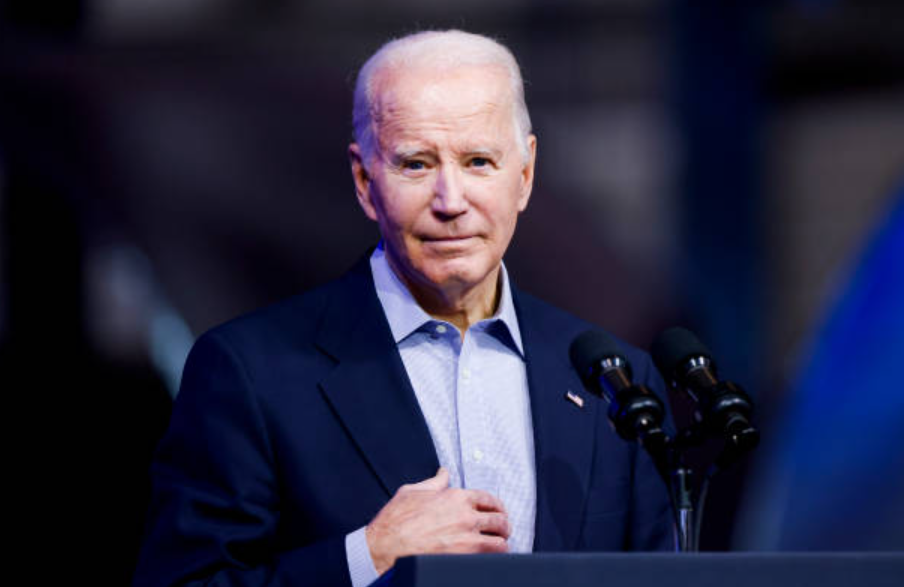President Joe Biden found himself embroiled in a whirlwind of verbal slip-ups and political discourse during a recent visit to a windmill factory in Colorado.
As he mingled with workers at the facility, a moment emerged where his comments regarding nuclear capabilities sparked both interest and concern.
Amidst the backdrop of wind turbines, Biden made a seemingly jesting yet startling remark about possessing a “code to blow up the world.”
This offhand comment shed light on the existence of the ‘nuclear biscuit’ a card housing codes for launching nuclear weapons carried by a designated military aide alongside the President, safeguarding the capability to transmit critical nuclear orders to the Pentagon.
The ‘nuclear football,’ formally known as the Presidential Emergency Satchel, has been a constant companion to sitting presidents since the Cold War era. Its purpose is to ensure rapid decision-making in the event of a nuclear threat. (https://nyicff.org)
Biden’s Critique and Missteps

Considering its weight and gravitas, this historical relic has frequently been the focus of political discourse and pop cultural allusions.
In a sequence of events that included mistakenly referencing his predecessor as ‘Congressman Trump,’ Biden’s trip took a political turn. He criticized cuts proposed by figures like Lauren Boebert, a Colorado congresswoman whose district he was visiting.
Boebert’s opposition to Biden’s policies, notably the Inflation Reduction Act, drew sharp criticism from the President during his address at the wind turbine factory.
Amidst the backdrop of policy critiques and inadvertent verbal missteps, Biden acknowledged his tardiness for the event and attempted to steer the focus back to the resurgence of jobs at the factory under the Inflation Reduction Act.
While the President’s remarks garnered attention and stirred controversy, they highlighted the intricate role of the ‘nuclear football’ and served as a reminder of the immense responsibility carried by leaders in possession of such power a responsibility that, at times, intertwines with the complexities of domestic politics.


Comments are closed.